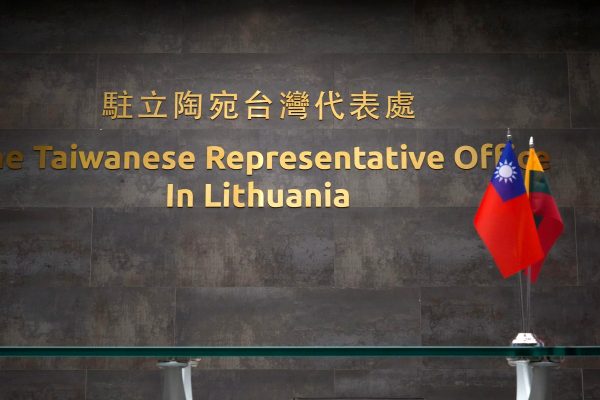While Lithuania is small, its policymakers insist that they can set their own foreign policy, including diplomatic relations with Taiwan.
But the Lithuania–China conflict has transformed into a clash between the China and the European Union. China has been undiplomatic in its response to the Lithuanian government, partly because it does not want to tolerate the departure of even a small country from the 17+1 dialogue, one of President Xi Jinping’s prestige projects. Even more important is preventing Lithuania from establishing ties with Taiwan. The Chinese leadership fears that tolerating such actions could encourage other countries to make the same move.
Brussels is trying to support an EU member country, but does not want to risk economic ties with China. Even if they still are not sure how to deal with Beijing, European policymakers are at least aware of the challenge that China poses. The slogan, first published in 2019, that China is a partner, competitor and systemic rival encapsulates the ambiguity of European policies towards the country. The Lithuanian case forces the European Union to choose between tolerating the Chinese policies to protect its commercial interests, or defending a small member country that is incapable of standing up to Beijing without the support of the other member countries.
While Lithuania never had much trade with China, Germany is dependent on Chinese trade. The former sends 1 per cent of its exports to China, the latter 7 per cent. In 2021, Germany exported goods worth €104.6 billion (US$110 billion) to China — more than the next ten EU economies combined. In German society, commerce has long been separated from foreign policy. Doing business with both China and Russia was considered legitimate because it was assumed that trade would, over time, contribute to making those countries more open and more democratic.
In 2021, Volkswagen CEO Herbert Diess remarked that only 5.7 per cent of the world’s population live in democracies ‘as we know it’. But the Economist Democracy Index that Diess referred to lists countries like Belgium, Italy, France and the United States as ‘flawed’ democracies. Remarkably, not one German newspaper questioned this justification for doing business in China and other non-democratic countries.
Germany was among the EU countries that initially expressed sympathy with Lithuania. But there has not been a joint response to China’s bullying. That may change as Brussels is considering a catalogue of sanctions against countries that try to influence political processes. The so-called anti-coercion instrument would permit the European Commission to impose tariffs and quotas and to restrict access to the bloc’s financial markets, public procurement and EU-funded research projects.
German businesses have taken notice of the Lithuania issue. The immediate reason is that China not only boycotted direct exports from Lithuania but also goods that contain components made in Lithuania, hurting some German auto parts suppliers. These boycotts have led the European Commission to file a suit against China at the WTO.
But there are reasons to be sceptical about the European Union’s prospects of besting China in this conflict. First, there is limited evidence that the Chinese government has been officially restricting imports. Beijing claims that private sector companies have been altering their supply regimes and it will be difficult for the EU to present sufficient proof that import restrictions have come from government orders rather than commercial decisions.
EU support for the Lithuanian policy of hosting a Taiwan government office, rather than a Taipei relations office, is dwindling. Lithuanian President Gitanas Nauseda recently said that allowing the Taiwanese office to open with that offending name has been ‘a mistake’.
Finally, Beijing wants to decouple from Western suppliers anyway. The conventional wisdom is that China needs imports from OECD countries to develop. But President Xi has declared on numerous occasions that fewer imports are desirable, so Beijing may not mind that importing from OECD countries is becoming riskier as Chinese companies, whether private or state-owned, restructure their supply chains.
The European Union continues to revise its external economic relations, spurred by the current war in Ukraine. EU member countries are observing the weakening of norms in international relations and standing firm with the Baltic countries is a key ingredient in Brussels’ response. Lithuania’s experience serves to demonstrate the vulnerability of smaller economies to economic coercion, which the European Union must try to minimise.
Simultaneously, Brussels must deal with China and Russia. While some observers have suggested that this is a good opportunity to reduce economic linkages with both autocratic states, others are concerned that a values-based foreign policy will cost income and jobs. In the looming geopolitical contest, the European Union should not tack between China and the United States.
Heribert Dieter is Senior Fellow at the German Institute for International and Security Affairs, Berlin, and Visiting Professor at Zeppelin University, Lake Constance.

